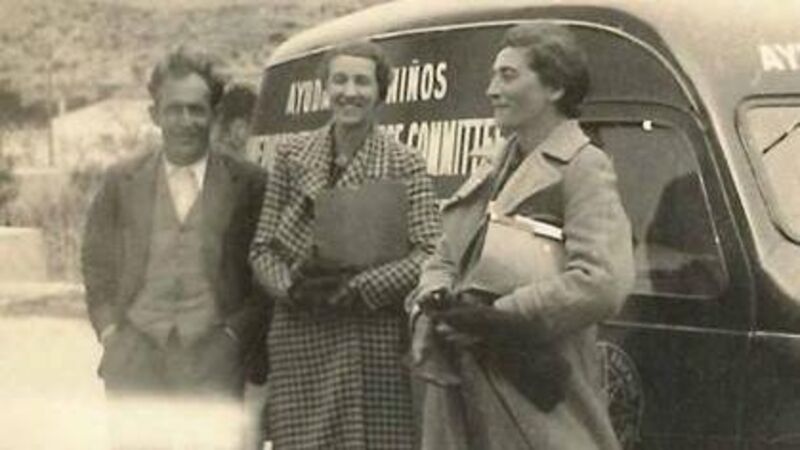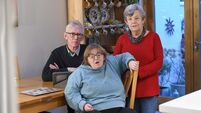Irish Examiner View: We must keep lessons of history alive

Mary Elmes (center) and Alice Resch photographed with another man, fellow heroes who helped rescue Jewish children from occupied France. Photo: afsc.org
Like playwright Oscar Wilde, Sir Winston Churchill has earned his ranking on the list of most-quoted people in history. One of his more memorable lines was recalled this week to mark the 80th anniversary of the Battle of Britain, the Royal Air Force campaign that fought off sustained attacks from the Luftwaffe, Nazi Germany’s air force, in the summer and autumn of 1940.
“Never in the field of human conflict was so much owed by so many to so few,” the then prime minister said of the pilots who are commemorated annually on Battle of Britain Day which fell on Tuesday.
It’s worth recalling not just his rousing words but also the war they describe because in the same week that Britain commemorated the victory of its Second World War pilots, a survey found that almost two-thirds of young Americans did not know that 6 million Jews were murdered in the Holocaust.
A fifth said they thought the greatest crime against humanity in 20th-century history was a myth or had been exaggerated.
More than half (56%) had seen Nazi symbols on their social media platforms and/or in their communities, and almost half (49%) had seen Holocaust denial or distortion posts online, according to the study commissioned by the Conference on Jewish Material Claims Against Germany.
While shocking, the survey results are not confined to the US. Last year, more than 2 million Britons said they thought the Holocaust was a myth, according to a Holocaust Memorial Day Trust poll.
It's concerning that a survey conducted in the US suggests that nearly two thirds of US young adults are unaware that 6 millions Jews were murdered during the Holocaust - this is why Holocaust education and commemoration is so important today.https://t.co/V4CaJMEvbM
— Holocaust Memorial Day Trust (@HMD_UK) September 16, 2020
The findings, however, are not all negative. A majority of the American millennials surveyed said that Holocaust education should be compulsory in schools while 70% said it was unacceptable to hold neo-Nazi views.
Governments everywhere should act on that because now, more than ever, it is time to listen to the few remaining survivors of one of the darkest periods in European history. The Holocaust didn’t just ‘happen’.
As Irish-based concentration camp survivor Tomi Reichental has said, it did not start with the gas chambers but with words that led to the dehumanisation and demonisation of certain groups of people.
And, as fellow Holocaust survivor Charlotte Berger-Greneche, said in Cork a year ago, the circumstances that led to the systematic murder of millions of Jews, Roma and political opponents, are being repeated around the world with the rise of authoritarian government, far-right groups and hate speech.
We might recall her words as the first anniversary of the inauguration of the Mary Elmes pedestrian bridge in Cork city approaches next week. The Corkwoman was instrumental in saving Charlotte Berger-Greneche, and hundreds more, from deportation to Nazi death camps.
But she was not the only Irish person to put her life at risk; some 50 Irish men and women are known to have taken part in acts of resistance against the Nazis during World War Two. They are the Irish ‘few’ to whom so much is owed by so many.
We might never know exactly how many were saved by Irish Resistance volunteers but we can honour both groups by keeping alive the memory not only of the Holocaust, but of the political climate that led to it.





